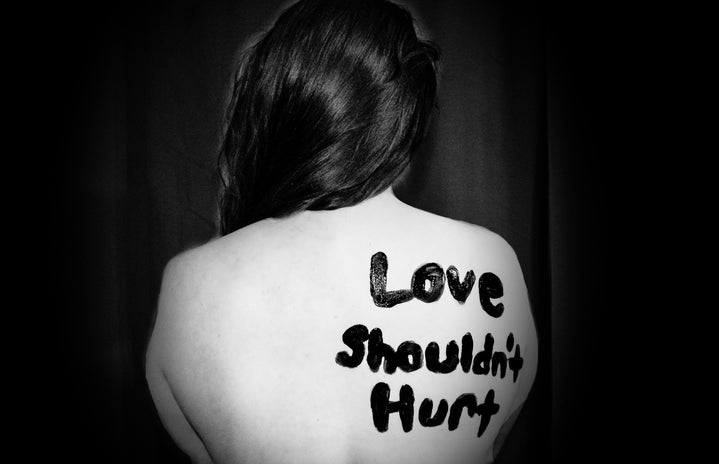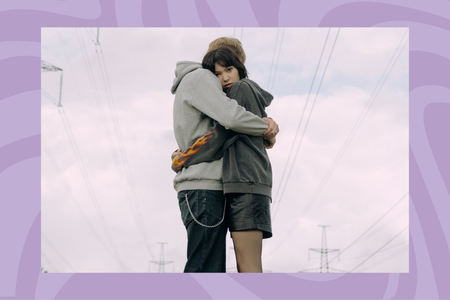What is Trauma Bonding?
A trauma bond is when a relationship has repetitive cycles of abuse immediately followed by positive reinforcements or love. When the foundation of a relationship is built from abuse, addiction, and/or abandonment, it oftentimes becomes toxic. Generally, in a trauma bond, there is a destructor, someone who is the abuser or has toxic traits, and the victim. As a result of the addiction to cycles of abuse and love, victims are loyal to their destructor. Trauma bonding is similar to Stockholm syndrome. Men and women can be victims of trauma bonding.
stages of Trauma bonding
When trying to explain what trauma bonding looks like, it can be hard to identify since trauma bonding is not sudden. Trauma bonding occurs gradually in a relationship and might not reveal itself to the individuals in the trauma bond; however, when looking from an outside perspective, people might describe trauma bonding as a toxic relationship. So how does a trauma bond develop? Here are seven stages of trauma bonding that are seen between a destructor and victim.
- Stage 1: LOVE BOMBING They shower you with excess amounts of love and compliments. They put you on a pedestal and show high regard for you in order to gain your affection.
- Stage 2: BUILDING RAPPORT They do everything they can to win your trust and open a door for dependency. They make you depend on them for validation. This can sometimes happen through guilt tripping.
- Stage 3: CRITICISM They slowly start to criticize you and put blame. They start to demand more from you as a person and do not respect your boundaries.
- Stage 4: GASLIGHTING Through manipulation, they make you doubt your perception of things and make you believe their words. This mostly happens when things do not go their way or during arguments.
- Stage 5: SURRENDERING CONTROL You are confused on what to believe, but resign your control and do what ever they say in order to go back to stage 1. You start to miss the love and affection from stage 1 and try to do anything to feel the way you did in stage 1.
- Stage 6: LOSS OF SELF VALUE You start to settle in arguments or other parts of the relationship due to fear of abandonment. Things get worse when you fight back, so you settle to keep peace in the relationship.
- Stage 7: ADDICTION You develop an addiction to the highs and lows in the relationship, physically and mentally. Your body starts to crave pleasure (emotionally or sexually) when experiencing high amounts of stress. The cycle of abuse followed by showers of love begins and the longer it goes on, the harder it is to break. You feel a sense of loyalty and do not want to stop experiencing this cycle as you have developed a dependency.
signs you are in a trauma bond: red flags
- When there is a constant pattern of the person making promises, but not following through and letting you down.
- The relationship is very inconsistent with intense emotions.
- You know you are being manipulated, but try to forget the bad things and only focus on the small amount of good memories that you want to get back to.
- You feel uneasy when you are with them, but feel like you cannot leave the relationship.
- You get physically ill when things are wrong in the relationship or are in a rough patch with them.
- They show you immense love one week, but talk about breaking off the relationship the next. The cycle continues throughout the relationship (on again, off again relationship).
- You know the person can be abusive, but write the behavior off as flaws and that you love them despite of that. You tend to focus only on the good things.
- Your friends and family have repeatedly pointed out red flags and advise you to leave, but you choose to stay.
- People around you feel like you have changed as a person after getting into a relationship with them.
- If your relationship is difficult to sustain, but you make yourself believe it is because relationships are normally hard and complicated.
trauma bond recovery

The first step to recovery is identifying your trauma bond and not look at the relationship with rose-tinted glasses. Rather than forgetting the abuse and focusing on the good, reconnect with reality and decide to leave. Trauma bonding can stem from childhood trauma or unresolved pasts. Talking to friends, family, and/or professionals can help you heal. Remember that you are much stronger than you think, both mentally and physically. Breaking a cycle of abuse and dependency can be hard, but when broken, you can have a healthier relationship with yourself and others. So, are you in a trauma bond with someone in your life?



